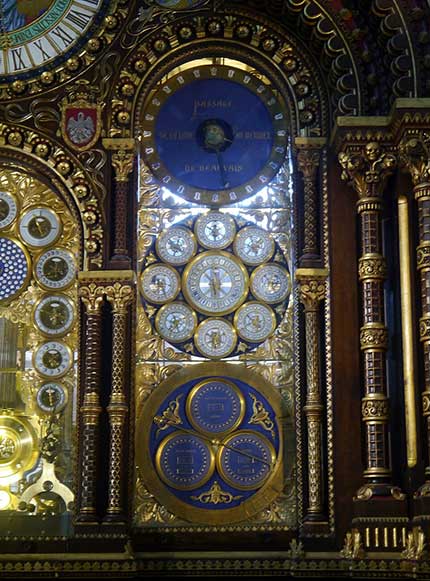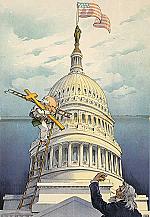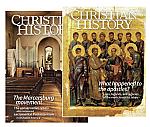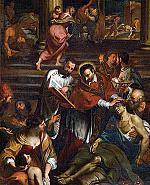Questions for reflection: Fasts and feasts of the church

[ABOVE: Astronomical Clock of the Cathedral of St. Peter, Beauvais, Department of Oise, Region of Upper France (former Picardy), France—Zairon / [CC-BY-SA 4.0] Wikimedia https://commons.wikimedia.org/wiki/File:Beauvais_Cath%C3%A9drale_Saint-Pierre_Innen_Astronomische_Uhr_8.jpg]
Whether you are new to the tradition of sacred time or already steeped in liturgical rhythms, use these questions to help you ponder the church year.
1. Before this guide, what did you know about the Christian year? What questions did you have about it in general? Which seasons or aspects were you the most curious about? Why?
2. What parts of the Christian year (if any) does your church celebrate?
3. Are there aspects of the Christian year you observe in your home? Which ones? Why? How do you observe them?
4. For each of the days or seasons mentioned in this guide:
a. Name one theological theme that this day or season illustrates.
b. Identify one Scripture related to this theme.
5. What ideas about worship did Christianity carry over from its Jewish roots?
6. Why do you think Christians developed a weekly cycle of worship before they began to mark events related to the life of Christ throughout the year?
7. Which are the oldest Christian feasts? Why did those develop first?
8. Which are the most recently developed feasts mentioned in this guide? Why were they added to the liturgical calendar?
9. Why do you think many Christian seasons developed backward from feast days?
10. Liturgists often talk about the “Advent-Christmas-Epiphany” cycle and the “Lent-Easter-Pentecost” cycle. How are these two cycles similar? How are they different? How does the concept of Ordinary Time relate to these cycles?
11. Are there saints whose lives intrigue you? If so, which ones might you remember as part of the liturgical rhythm of your home or church?
12. Name a few significant differences between the liturgical calendars of Eastern and Western Christianity. How would you characterize some of the different emphases of the church year in East and West?
13. Why does the Christian year traditionally not contain civic holidays? Are there civic holidays that your church celebrates? Why? How are they referenced in worship?
14. Which (if any) customs talked about in this guide intrigue you enough to celebrate in your family or church settings going forward?
15. Which (if any) aspects of the church year do you still find puzzling? CH
By The editors
[Christian History originally published this article in Christian History Issue #156+ in 2025]
Next articles
Did you know? Vatican II
A helpful introduction to terms and ideas as you begin the Vatican II story
the editorsLetters to the editor, Vatican II issue
Readers respond to Christian History
our readers and editorsPiety and power
Politics, reforms, and lay movements shaped Catholicism’s modern era
Edwin Woodruff Tait







